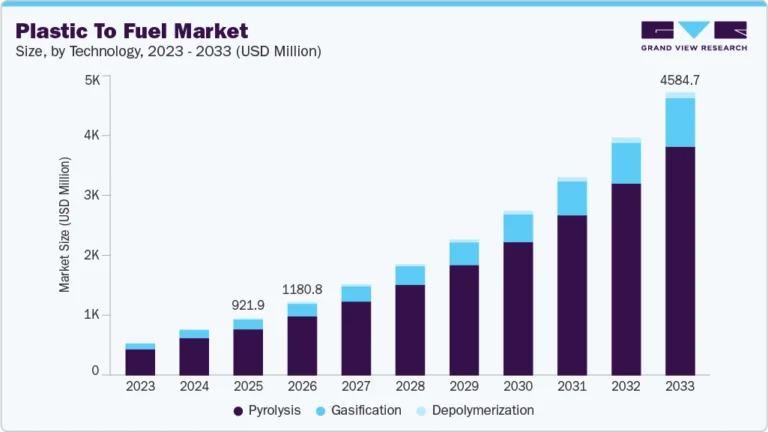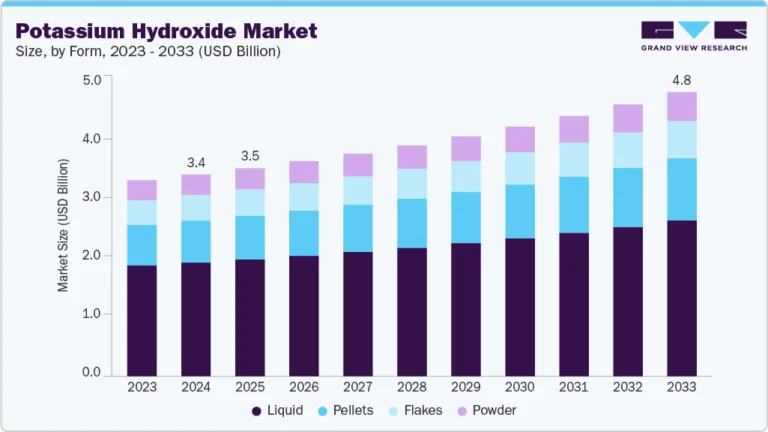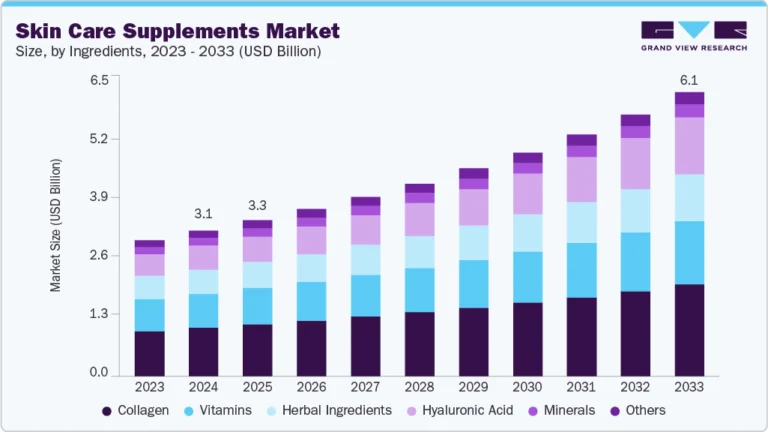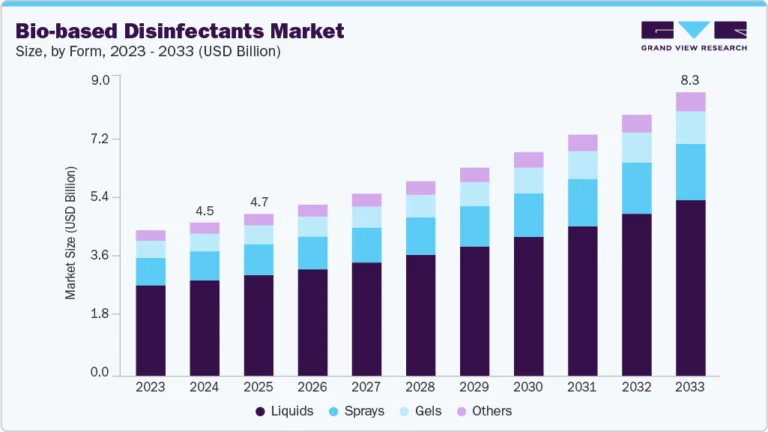AI In Accounting Market Size, Share & Trends Analysis growing at a CAGR of 39.6% from 2025 to 2033
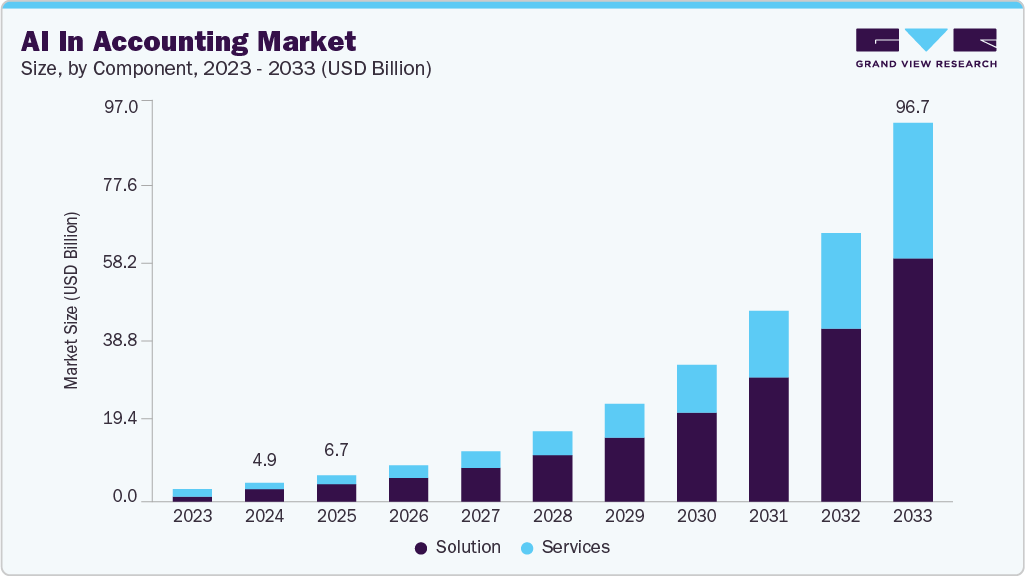
The global AI in accounting market size was estimated at USD 4,872.7 million in 2024 and is projected to reach USD 96,686.1 million by 2033, growing at a CAGR of 39.6% from 2025 to 2033. The AI in accounting market is experiencing rapid growth due to increasing demand for automation in financial operations and compliance tasks.
Key Market Trends & Insights
- North America AI in accounting dominated the global market with the largest revenue share of 37.5% in 2024.
- The AI in Accounting market in the U.S. led the North America market and held the largest revenue share in 2024.
- By component, solution led the market and held the largest revenue share of 67.2% in 2024.
- By technology, the machine learning and deep learning technologies dominated the AI in accounting market in 2024.
- By application, automated bookkeeping dominated the ai in accounting market in 2024 as businesses prioritize efficiency in routine financial tasks.
Market Size & Forecast
- 2024 Market Size: USD 4,872.7 Million
- 2033 Projected Market Size: USD 96,686.1 Million
- CAGR (2025-2033): 39.6%
- North America: Largest market in 2024
- Asia Pacific: Fastest growing market
Request a free sample copy or view report summary: https://www.grandviewresearch.com/industry-analysis/ai-accounting-market-report/request/rs1
Businesses are adopting AI-powered tools for tasks such as bookkeeping, invoicing, fraud detection, and forecasting to improve accuracy and efficiency. Infrastructure partnerships are becoming essential for accelerating AI adoption in accounting. Using advanced cloud platforms gives accounting firms access to scalable processing power and specialized artificial intelligence (AI) tools. This helps teams build, test, and deploy accounting-specific AI models with greater speed and accuracy.
Faster development cycles allow firms to launch automation and analytics solutions more quickly. These collaborations also support the storage and handling of sensitive financial data securely. As a result, organizations are integrating AI into core accounting functions such as bookkeeping, auditing, and compliance monitoring. Cloud-based environments make it easier to update and maintain intelligent features.
Companies are actively forming cloud alliances to advance AI integration in accounting. For instance, in May 2025, Sage Group plc, a UK-based software company, advanced its AI capabilities for small and medium businesses through a collaboration with Amazon Web Services, Inc., utilizing tools such as Amazon Bedrock and AWS Trainium to accelerate the development of AI models. These innovations, including enhancements to Sage Copilot, aim to improve financial decision-making, automate workflows, and provide real-time accounting and compliance insights.
AI is transforming the accounting sector by simplifying routine tasks through automation. It enables more tailored financial processes, allowing businesses to adapt tools to specific needs. Real-time insights help decision-makers respond faster and more accurately to financial changes. The focus is also shifting toward unified platforms that connect various accounting functions in one system. As these technologies evolve, they are becoming more accessible to firms of all sizes.
Cloud integration is further accelerating AI adoption by improving scalability and remote access to accounting systems. Generative AI tools are enhancing productivity by automatically generating reports, invoices, and recommendations. Companies are increasingly investing in AI partnerships to expand their capabilities. For instance, in November 2024, KPMG LLP announced a $100 million investment in its U.S. Google Cloud practice to develop AI-driven solutions such as Vertex AI and Gemini-powered tools that support automated, insight-rich financial processes across sectors.

